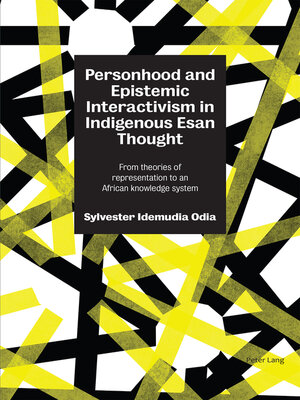Personhood and Epistemic Interactivism in Indigenous Esan Thought
ebook ∣ From theories of representation to an African knowledge system
By Sylvester Odia

Sign up to save your library
With an OverDrive account, you can save your favorite libraries for at-a-glance information about availability. Find out more about OverDrive accounts.
Find this title in Libby, the library reading app by OverDrive.



Search for a digital library with this title
Title found at these libraries:
| Library Name | Distance |
|---|---|
| Loading... |
Epistemic interactivism, an aspect of the epistemology of representation, is a cognitive intercourse between the subject and person-object of knowledge that underlies the conception of a person in Esan thought. Traditional theories of representation (especially as presented by Descartes and Locke) separated the subject from the object of knowledge, and classified persons and non-persons as object of knowledge. This separation and classification ignored the cognitive and moral values of persons, disengaged the subject from the world and burdened the self with solitude and isolation, and created propositional knowledge that dehumanised the relationship between the subject and person-object of knowledge. Within the theoretical framework of Hegel's epistemic interactivism (meliorated by Bowne's personalism) and Esan epistemology (in African philosophy), this book exposes the epistemic interactivism of Esan thought which unified the subject and person-object of knowledge on cognitive and moral grounds; thus providing an adequate basis for personhood and resolving the dehumanised relationship between the subject and person-object of knowledge in the traditional theories of representation.
Within the context of epistemic injustices, this book analyses the interactivist epistemology of indigenous Esan thought as an alternative epistemological conception of the person-object of knowledge which resolves the deficiency of the traditional theories of representation.







